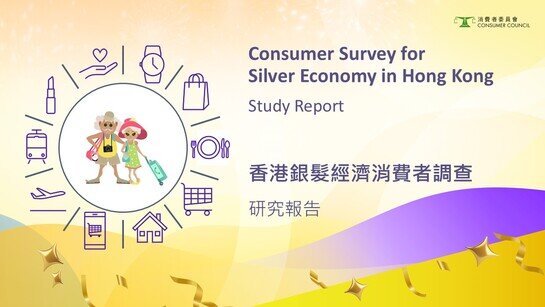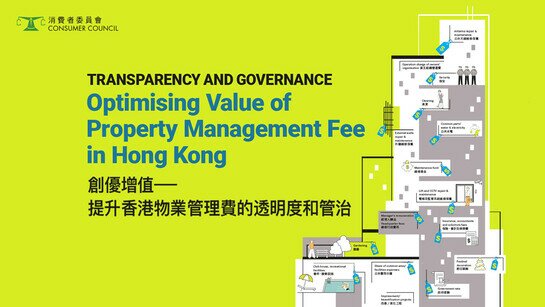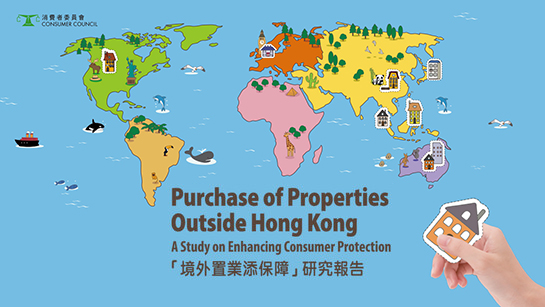Introduction
- In May 1997 the Consumer Council received two separate complaints from retailers against suppliers for enforcing resale price maintenance (RPM) by withholding supplies. RPM is a vertical restriction that exists when suppliers require retailers to sell their products at, or above, a specified price. We have discussed the complaints with the suppliers concerned, with the complainants and with other retailers. In the body of this paper all companies other than the complainants are referred to by identifying letters. The names of the companies and the description of the products concerned are in the confidential appendix to the paper. Both complainants are content to be identified. The other companies are aware that they may be identified to the Government. During our research evidence came to hand of another sector where it appears that RPM is practiced but this has not been pursued in view of the need to complete this paper.
- The conclusion we have reached is that RPM exists in Hong Kong. One company, supplier R, went so far as to say that 'resale price maintenance is very common in Hong Kong'. Our conclusion is significant because in the discussions that followed the publication of our report, Competition Policy: The Key to Hong Kong's Future Economic Success, in November 1996, some commentators questioned whether anti-competitive practices existed in Hong Kong. This evidence of the existence of RPM provides support for the recommendations made by the Council that Hong Kong should enact a comprehensive Competition Law and establish a Competition Authority to enforce it.
- Private anti-competitive practices such as RPM cannot be dealt with by Government through the introduction of specific administrative solutions such as the steps taken to improve competition in the highly regulated banking and telecommunications industries, or in the property industry where the government, as the prime supplier of land, is a major participant. Only a law with general applicability across all industries can provide a solution.
- This paper looks first at the facts of the two cases and at the effects on economic efficiency. It considers the argument advanced by some economists that vertical restraints such as RPM are only of significance when practiced by companies with market power and looks at the benefits claimed for RPM.
- In most cases RPM is detrimental to the welfare of consumers and is, therefore, prohibited in many jurisdictions that have competition law. There are, however, arguments that can be advanced in favour of RPM such as the fact that it can be used to preserve the existence of small shops and to prevent free-riding. The Council believes that such cases should be examined by a competition authority and that such an authority should be set up by Hong Kong.
The Carrefour Case
Background and complaint
- The local supermarket industry in Hong Kong has long been dominated by two major supermarket chains with a combined market share of as much as 70% [1] . The opening of Carrefour at Hang Fa Chuen at the end of 1996 represented the entrance of a global force into the local supermarket industry. In the comments made to the Trade and Industry Branch, following the publication of the Council's report on Competition Policy, the arrival of Carrefour was mentioned by industry as an example of the open nature of Hong Kong's economy and the lack of need for a competition law. Carrefour is one of France's major supermarket chains specializing in the type of very large supermarkets known as hypermarkets. It now owns or manages 245 hypermarkets in 13 countries.
- In Hong Kong, Carrefour has an aggressive pricing policy designed to attract customers through low prices. Each week a significant number of products are advertised for sale at below the recommended resale price (RRP). Advertising products at less than RRP is common practice in supermarket retailing. It is, however, often the case that the retailers and the suppliers have agreed what the discounted price will be. The supplier may be offering a reduced wholesale price to the supermarket to support the promotion. In cases where the discounted price has been agreed what is really being advertised is a reduction in the normal RRP but it is still a recommended price. What Carrefour did was to go below the agreed discount price or to offer a discount that had not been agreed with the suppliers. This led to complaints by suppliers to Carrefour and threats that supplies would be withheld until Carrefour returned to the agreed price level. In some cases these threats were carried out. Carrefour supplied the Council with the names of 22 companies that it claimed had put pressure on it to return to recommended prices.
- To obtain a clear understanding of the issues involved, the Consumer Council wrote to the suppliers involved. In addition, we also contacted other supermarket operators.
Response from Suppliers
- The Council wishes to record its thanks to the suppliers for the fast and informative responses they gave to its enquiries. Seven companies confirmed having told Carrefour that they would take action to enforce RPM, although one of the six said that the threat was made by an employee on his own initiative and was contrary to company policy. Twelve companies denied that they had made threats to Carrefour although several confirmed that they had made representations to Carrefour about its pricing policy. The remaining three companies declined, as a matter of policy, to discuss their relationship with Carrefour.
Response from Supermarkets
- Four supermarket chains responded to the Council's request for information as to whether they had encountered problems similar to that of Carrefour. None of the biggest supermarkets in Hong Kong reported that they had been subjected to similar pressures, although one of the suppliers did claim that it had withheld supplies from one of these major supermarkets because it had charged less than RPM. However, a medium sized supermarket chain (Supermarket X) reported that it had experienced such pressure from suppliers.
Existence Of RPM In Hong Kong
- Carrefour's version of events differs from some of the responses we obtained from its suppliers. The Council is not a competition authority. It has no investigative powers. It therefore chooses not to judge between the conflicting versions of events because it has no need to do so. The confirmation of Carrefour's version of events from seven suppliers and the confirmation from the other supermarket that it too has been threatened with the loss of supplies because it went below RRP are sufficient to demonstrate that RPM exists in Hong Kong. The Council notes the comment by one of the suppliers that ·resale price maintenance in Hong Kong is very common'.
Effect on the Market
- The supplier who said that RPM was widespread added, 'its existence is for a very sound and legitimate business purpose'. This view conflicts with view taken by the courts in the many jurisdictions that prohibit RPM. Suppliers who support RPM say that it is necessary to protect their own margins and those of the small shopkeepers who would otherwise be driven out of business.
- Supermarkets in Hong Kong are keen to avoid being undercut by their competitors. Suppliers have said that if a supermarket advertises a price that is below the RPM the other supermarkets will wish to match it. The supermarkets will not, however, wish to sacrifice their margins. They will, it is claimed by suppliers, contact the supplier and ask for a compensatory payment to restore their margin. In such circumstances the supplier may choose to cut supplies to the discounting retailer rather than to make compensatory payment to other supermarkets, or to see those supermarkets stop stocking their product because they wish to avoid unfavourable price comparisons.
Effect on Small Shops
- Another reason for wishing to avoid cuts in recommended price is that in extreme cases the supermarket which will enjoy bulk discounts, may be charging customers less than the supplier is charging small retailers. The small retailers will, therefore, find it cheaper to buy from the supermarket than directly from the supplier. As a result the average profit margin enjoyed by the supplier will fall. Supplier U said that this had happened in respect of their product.
Effect on Suppliers
- Even when small shops can buy from suppliers at less than the price charged by supermarkets the profit margin may be so low that they stop selling the supplier's product This will leave the supplier increasingly dependent on the major supermarkets which may use their enhanced power to further bargain away the suppliers' profit margin. Cumulatively the effect of discounting may be to bring about a significant reduction in the number of small shops.
- Preventing the erosion of their own margins, maintaining control over their pricing policy and supporting the existence of small shops to ensure wide distribution channels for their products are undoubtedly sensible policies for suppliers, but they also represent the impairment to competition and prevent the efficient working of the market.
Effect on New Entrants
- In the absence of RPM increased pressure on margins from suppliers wanting lower prices should encourage suppliers to cut costs. At the same time suppliers will be trying to limit the reduction in their wholesale prices and so the supermarkets will also have an incentive to cut costs. Eventually a new equilibrium will be reached. The less efficient suppliers and retailers will have been eliminated from the market and overall prices should have fallen and resources should be being used more efficiently.
- In addition, the elimination of RPM removes a barrier to new entrants as companies interested in entering the market will be able to compete based on their ability to offer products at a lower price. This is especially important in the supermarket industry in Hong Kong because of the high cost of land and the established position of the existing chains. Without the ability to compete on the number of outlets limited the ability to sell below RRP is vital for new entrants like Carrefour to establish a foothold.
Predatory Pricing
- Four suppliers claimed that Carrefour had reduced prices below wholesale cost and had sold at a loss. Carrefour itself denied this and claimed that it had always sold at a profit A question has, however, been raised during the preparation of the report as to whether Carrefour has been engaged in predatory pricing.
- Predatory pricing takes place when a company deliberately follows a policy that reduces its profits with the aim of forcing its competitors from the market so that it can subsequently enjoy monopoly profits . Predatory pricing is only feasible when the predator can be sure that its subsequent high profits will not attract new entrants. In this case there is no suggestion that Carrefour hoped to drive the major Hong Kong supermarkets into closure so that it could enjoy a subsequent monopoly. Its aim was to attract business by offering low prices. Promotions offering low prices on particular products benefit consumers but can have serious effects on the survival of small shops.
The Pricerite Case Background and Facts of the Case
- Pricerite is a chain retailer that sells furniture and general household products. In a recent promotional effort by the company, it sold mattresses from several suppliers at a 40% discount. This level of discount was below the recommended resale price and below the approved discount rate of products supplied by supplier W. As a result supplier W withheld further supplies. Furthermore, supplier W refused to deliver to Pricerite customers who purchased at the discounted price during the promotion period. This led to lost sales and dissatisfied customers for Pricerite. The refusal to deliver was possible as it is common practice in the industry that dealers such as Pricerite are not expected to invest in inventory. The role the retailer is to display stock and take orders and deposits from customers. The products are delivered directly from suppliers. Hence, sales are mostly made without the backing of inventories at the retail level. However, it also means that the supplier carries the financial risks in this industry.
- The refusal to deliver resulted in consumer complaints to Pricerite. Since Pricerite did not have the mattresses in stock, consumers had to settle for other brands or a refund.
Response from supplier
- The Council met with the supplier which was very open in its response. The company confirmed that it was its policy to enforce RPM. The policy was adopted 3 years ago as part of a strategic initiative to enhance sales and sales service.
- Prior to the introduction of the policy, the supplier had a network of around 1 ,000 retail outlets in Hong Kong. Price competition was keen among the outlets. Smaller retailers sold the company's products at prices lower than department stores. Facing competition from small retailers, the larger outlets increasingly put pressure on the supplier to cut its wholesale price.
- Supplier W was, in fact, suffering from the classic "free-rider" problem, frequently cited in competition literature, whereby the consumer goes to full service outlets, in this case large department stores, to take advantage of the display and demonstration facilities, but makes the purchases at a retailer that does not offer the same facilities and has, therefore, lower costs. The continuation of this trend led to losses at department stores who threatened withdraw from the sale of the company's products.
- At the same time, because the smaller retailers were selling the supplier's products at a low price, there profit margins were reduced. Small retailers also put pressure on the supplier to further reduce its prices.
- The supplier was, therefore, confronted with increasing pressure to reduce prices. To counter this problem it restructured its retail network and selected 120 out of the 1 ,000 odd outlets to operate as exclusive distributors. This not only gave the company better control over the prices of its products, but also allow it to expand services providing sales training for the dealers. In addition, it introduced a price protection scheme that guarantees that if a consumer finds that a mattress they have purchased could have been obtained at a cheaper price from another authorized dealer the difference will be refunded.
- The supplier has told us that, as a result of the programmed, turnover by value has increased substantially over a three year period during which no price increase has taken place.
Are Vertical Restraints Important?
- Some economists argue that competition policy should concern itself with horizontal restraints and not vertical restraints. They argue that it does not matter if the supplier of a particular product imposes restraints on its customers providing that there are other suppliers and that suppliers are competing with each other.
- The argument has attracted support but even some of its supporters differentiate between RPM and other vertical restraints and accept that RPM should be prohibited. In many jurisdictions, for example the United Kingdom and Japan, RPM is specifically mentioned in legislation. The reason for treating RPM differently from other restraints is that it has a direct effect on price. Other vertical restrictions, for example forcing a retailer to carry a supplier's entire range of products, will eventually feed through to the cost to the consumer but the effect of RPM is direct and immediate.
- Another important consideration is that, if RPM exists at all it may be widespread and accepted as the norm in the industry. In the absence of a prohibition, price competition between retailers will be lessened. When competition theory developed the importance of competition between retailers was perhaps less important than it is at present. The large retail chains now have considerable bargaining power. It is, therefore, important that competition between them should not be muted by the existence of RPM.
- Even a prohibition on RPM may not be enough. The Monopolies and Mergers Commission in the U K has published a report on the retailing of electrical appliance calling on companies to give legally enforceable undertakings to abandon RRP. It is thought to have concluded that the existence of RRP has led to practices that are tantamount to RPM and, moreover, the existence of two levels of RRP, the normal RRP and the agreed discounted RRP has confused consumers.
The case for RPM
Social considerations
- In many jurisdictions RPM is specifically prohibited in the competition law. Where exemptions are granted they are given for cultural or social reasons. The experience of the UK is illustrative. Only two exemptions from the prohibition on RPM have been granted by the Restrictive Practices Court. The first was in respect of books. The Court believed that small book shops and the rich diversity of books published in the United Kingdom could not survive the introduction of unrestricted competition. It accepted the argument that has come to be known as 'books are different'. It allowed RPM to continue because it though it essential to the UK's cultural welfare that small well stocked book shops should exist in every significant town. The Court reversed decision was overturned earlier this year and RPM is no longer permitted for books.
- The second exception was made in respect of over the counter pharmaceuticals. The Court believed that sales of such products made a significant contribution to the profits of small dispensing pharmacies. It accepted the argument that ending RPM would lead to a reduction in the number of small pharmacies and that patients, who were usually sick and often elderly, would have further to travel to obtain their medicines. For social reasons it allowed RPM on pharmaceuticals to continue as a form of tacit subsidy. This decision is also being reviewed by the Restrictive Practices Court.
- These exemptions were not given because it was thought that industry would be more efficient or that consumers would benefit from lower prices. In each case it was decided that for non-economic reasons a restriction on competition should be permitted even though consumers would not be able to benefit from the economies of scale that enable successful retailers to charge lower prices.
Preventing Free-Riding
- The explanation of its policy given to us by supplier clearly demonstrated how RPM can be used by a supplier to contain "free-riding". The action taken by supplier W is anti-competitive in that customers are paying a higher price but the company would argue that, had it not been able to contain the free -riding problem, consumers would have been denied the benefit of full service dealers and, ultimately, supplier W may have stopped supplying the Hong Kong market.
- In many other jurisdictions, notably the European Union [2] , suppliers are only allowed to counter the problem of free-riding by establishing networks of authorized dealers. The supplier can say it will deal only with those retailers who meet the requirements it sets on matters such as stock holding, staff training, even the way in which the product shall be displayed. The supplier is not allowed to insist that retailers follow guidance on prices. Retailers are free to decide the price they will charge.
- It should be noted that in this case that although there may have been companies free-ridding in the past there is no suggestion that Pricerite was failing to provide a full service and was, therefore, trying to free-ride.
Developing Brands
- Some economists have argued that it is necessary to permit RPM in order to encourage suppliers and retailers to invest in the development of brands and the provision of pre and after sales service. The fact that the countries of the European Union enjoy these benefits without the need for RPM provides evidence to the contrary. There are, however, some jurisdictions, for example Taiwan and Mexico, where RPM is permitted if it can be demonstrated that there is strong inter-brand competition and that RPM will not have an anti-competitive effect. Taiwan has not yet, however, granted an exemption on these grounds.
Conclusion
- The Consumer Council is not a competition authority. Reaching definitive conclusions in respect of the two complaints made to it is not a role it should adopt. It is not simply a question of the absence of the investigative power, although such power would be necessary to resolve the differences in the versions of event given to the Council by Carrefour and some of its suppliers. There is also the need to consider whether maintaining the existence of small shops should play a part in the decision.
- Our enquiries have, however, established the existence of RPM in Hong Kong and a decision must be taken as to whether the practice should be prohibited. Most other jurisdiction with competition law do prohibit RPM and take action to enforce the prohibition. In its report, Competition Policy the Key to Hong Kong's Future Economic Success, the Council argued that there should be a Competition Law prohibiting practices such as RPM and a Competition Authority to establish the facts in individual cases. The events outlined in this paper support these recommendations.
Footnotes:
1. Consumer Council, Report on The Supermarket Industry in Hong Kong, 1994.
2. The treatment of Company W in other jurisdictions is complicated by the fact that it holds the inventory. The particular facts of the case might mean that sales could be arranged so that the prohibition on RPM was not breached.











